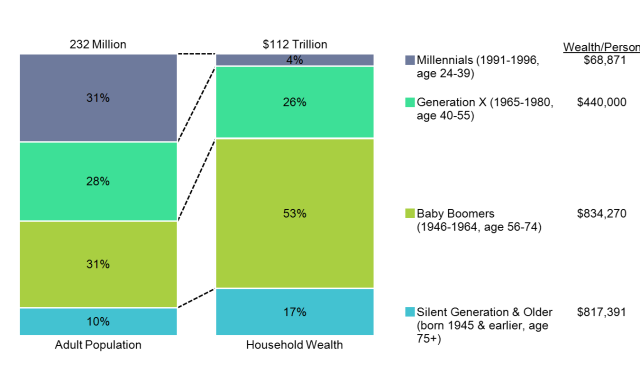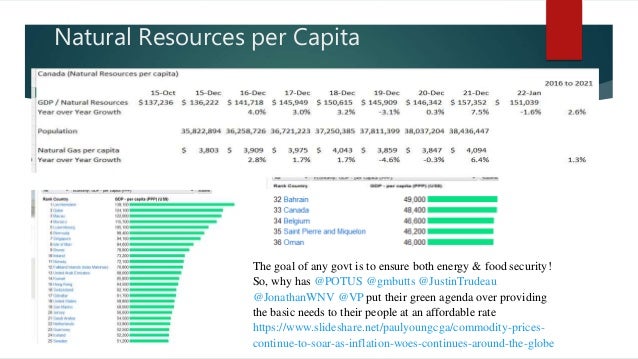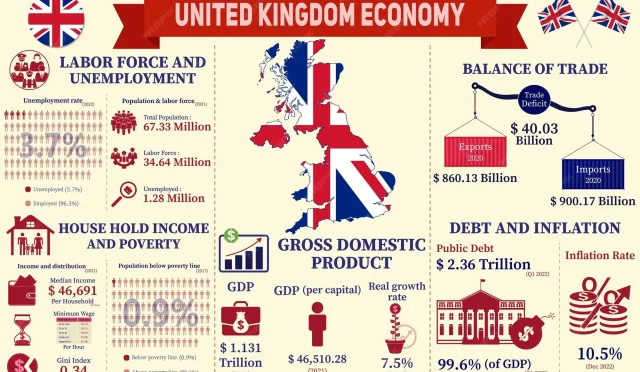True wealth transcends the mere accumulation of money; it embodies financial health, peace of mind, and the freedom to live without stress. As Chartered Accountant Nitin Kaushik highlights, having significant savings is meaningless without the tranquility that flows from sound financial habits. The habits of financially mature individuals—such as prudent budgeting and disciplined investing—serve not only to grow wealth but also to cultivate a secure mindset. In a world where financial literacy is paramount, Kaushik’s insights act as invaluable wealth management tips that guide us toward a more enriching life. Ultimately, true wealth fosters a state of mental ease, allowing for genuine fulfillment beyond monetary measures.
The essence of real affluence goes beyond tangible assets and focuses on achieving a balance of financial ease and emotional stability. Nitin Kaushik challenges the traditional views of success, arguing that true financial prosperity is defined by the peace of mind it provides rather than the size of one’s bank account. This perspective emphasizes the importance of sound fiscal practices and a deep understanding of financial literacy, which enables individuals to build lasting wealth. By cultivating habits associated with those who have attained financial maturity, one can navigate the complexities of wealth management more effectively. Ultimately, the journey towards true wealth is intertwined with the pursuit of confidence, security, and a life well-lived.
Understanding Financial Health and True Wealth
True wealth transcends mere monetary accumulation; it encompasses the overall financial health of an individual including mental tranquility. Chartered Accountant Nitin Kaushik highlights that having substantial savings, such as ₹50 lakh, does not equate to true wealth without the accompanying peace of mind. This perspective shifts the focus from flaunting wealth to valuing financial security, stability, and emotional comfort. He emphasizes that effective budgeting and saving are not just about accumulating more, but more importantly, pursuing a life free from the anxieties of financial uncertainty.
Financial health acts as a foundation for achieving true wealth. When an individual feels secure in their finances, they gain not only freedom to make choices but also peace of mind which contributes to overall well-being. As Kaushik points out, investing wisely with a composed mindset leads to financial independence. Hence, individuals need to foster habits that prioritize long-term financial well-being over short-lived displays of prosperity. In this sense, true wealth equates to achieving a balance between financial literacy and personal peace.
Building Habits of Financially Mature Individuals
Developing sound financial habits is crucial for cultivating true wealth. Kaushik outlines five pivotal habits of financially mature individuals, underscoring the necessity of embracing discretion over display. For instance, he advocates avoiding oversharing financial successes on social media, suggesting that genuine growth is often subtle and doesn’t necessitate external validation. By concentrating on personal financial goals devoid of public scrutiny, individuals can enhance their financial stability and maintain focus on what truly matters.
Additionally, Kaushik emphasizes that true wealth derives from an internal understanding of financial standards rather than societal pressures. He reassures that it’s okay to say no to practices that don’t align with one’s financial values, reiterating that avoiding ostentation is a critical step toward reaching peace of mind with money. By ignoring market noise, individuals can protect their investments and emotional well-being from distractions, leading to better portfolio management and fostering a healthier approach to personal finance.
The Role of Financial Literacy in Wealth Management
Financial literacy is an essential component in the journey toward building true wealth. As emphasized by Kaushik, this involves continuous learning about investment options, risk assessment, and adapting plans to cope with economic shifts. Financially savvy individuals understand the nuances of wealth management, enabling them to create strategies that align with their life goals and aspirations. By prioritizing education in finances, one can navigate complexities with confidence and increased competence.
Moreover, Kaushik encourages individuals to regularly review their financial goals to ensure alignment with their evolving needs and circumstances. This proactive approach fosters resilience, especially during economic uncertainty, as informed decisions arise from a well-rounded understanding of one’s financial situation. The path to true wealth is thus characterized by ongoing education and adjustment, which not only enhances financial health but promotes peace and security in one’s life.
Why Peace of Mind is Essential for Financial Health
In Kaushik’s view, the intersection of financial health and peace of mind is vital for determining true wealth. Stress and anxiety stemming from financial instability can lead to detrimental decision-making. Therefore, promoting a calm mindset through sound financial practices is crucial. Rather than prioritizing high income or extravagant lifestyles, seeking stability through well-informed financial decisions can lead to lasting peace.
Furthermore, financial security breeds confidence, allowing individuals to navigate both opportunities and challenges with greater ease. Kaushik articulates that it’s essential to cultivate an internal sense of wealth that is independent of external pressures or material displays. By focusing on achieving peace of mind, individuals are more likely to make informed financial decisions, prioritize their long-term goals, and truly appreciate the freedom that comes from financial health.
Practical Wealth Management Tips for Peace of Mind
Nitin Kaushik offers several practical wealth management tips aimed at enhancing financial health while ensuring peace of mind. First, he suggests creating a budget that accounts for all income and expenses, providing clarity and control over personal finances. By knowing where every rupee goes, individuals can avoid overspending and allocate funds toward savings and investments effectively, paving the way toward achieving true wealth.
Next, Kaushik recommends setting aside a portion of income for an emergency fund, allowing individuals to prepare for unexpected financial challenges without jeopardizing their peace of mind. Financial stress can be significantly alleviated through proactive measures, including regular contributions to savings. By developing this habit, one can attain a sense of security and focus on long-term wealth creation rather than short-term anxieties.
Embracing Patience and Composure in Wealth Building
Financial maturity embodies the principles of patience and composure as highlighted by Kaushik. Individuals who aspire to attain true wealth must recognize that financial growth is a gradual process that cannot be rushed. Emotional stability plays a key role in this journey, as healthy financial decisions stem from a calm mind rather than impulsive reactions to market fluctuations or social pressures.
Additionally, avoiding the temptation to seek validation through material displays allows individuals to preserve their financial integrity. Kaushik mentions that real investors should embrace long-term strategies and let time yield results rather than chasing immediate gratification. This composed approach not only supports better financial outcomes but also nurtures an environment conducive to mental serenity, reinforcing the connection between wealth and peace.
The Impact of Market Noise on Financial Decisions
Kaushik is clear about the detrimental effects of market noise on sound financial decision-making. Investors often encounter a barrage of information, much of which can be misleading or overwhelming. He stresses the importance of maintaining focus and distance from external influences, suggesting that individuals are better off ignoring distractions to protect their investment clarity and mental health.
By learning to filter out the noise, investors can make informed, rational choices about their finances. It is vital to develop a clear investment strategy rooted in personal financial goals rather than reactions to transient market trends. Kaushik’s insight reinforces that a calm and collected approach not only aids in preserving wealth but also conserves peace of mind during volatile times.
Revisiting Financial Goals during Economic Changes
Considering the unpredictability of economic environments, Kaushik recommends revisiting financial goals regularly. This practice allows individuals to adapt their strategies in accordance with changes in income, expenses, and market conditions. Flexibility in financial planning is key to preserving true wealth, as it ensures resilience against unforeseen challenges.
Additionally, regularly reviewing financial objectives can serve as a motivation to remain aligned with one’s core values and habits. Kaushik stresses that the journey to financial maturity involves continual assessment, ensuring that individuals are not sidetracked by fleeting trends but remain focused on their ultimate aspirations. With proactive adjustments, individuals can maintain both their financial health and peace of mind.
Finding Fulfillment Beyond Material Wealth
Kaushik champions the idea that true wealth is not merely about material accumulation but rather about finding fulfillment in life. Achieving peace of mind through financial security enables individuals to enjoy experiences rather than just possessions. He advocates that those who prioritize internal satisfaction over societal expectations are more likely to cultivate genuine wealth.
In today’s fast-paced world, where status is often equated with accumulation, individuals must reflect on what truly matters to them. Kaushik encourages focusing on relationships, personal growth, and emotional wellness as pathways to lasting contentment. By framing financial decisions within the context of broader life satisfaction, individuals can attain a profound sense of peace that renders true wealth immeasurable by monetary standards.
Frequently Asked Questions
What is true wealth according to financial health definitions?
True wealth goes beyond mere monetary assets; it is defined by the peace of mind and freedom that financial health brings. Charter Accountant Nitin Kaushik emphasizes that effective wealth management leads to a calm and secure mental state, illustrating that financial freedom equates to mental freedom.
How do habits of financially mature individuals contribute to achieving true wealth?
The habits of financially mature individuals, such as avoiding oversharing financial successes and ignoring market noise, are essential in pursuing true wealth. These practices foster a disciplined approach to wealth management, ensuring that financial decisions are made for personal growth rather than outward validation.
What are some effective wealth management tips to attain true wealth?
Key wealth management tips include budgeting effectively, prioritizing savings, and making informed investments. Charter Accountant Nitin Kaushik advises that focusing on these strategies brings about financial health and peace of mind, allowing individuals to enjoy true wealth rather than just wealth in numbers.
Why is financial literacy important in understanding true wealth?
Financial literacy is crucial in understanding true wealth as it equips individuals with the knowledge to make informed decisions about budgeting, investing, and risk management. Kaushik underscores that ongoing education in finance helps adapt to life changes, ensuring sustained financial health and stability.
How does budgeting impact an individual’s true wealth?
Budgeting plays a vital role in achieving true wealth by providing a clear framework for managing expenses and prioritizing savings. It enables individuals to make intentional financial decisions that foster peace of mind and long-term stability, aligning with Kaushik’s philosophy that freedom, not greed, drives financial success.
What does true wealth look like beyond financial assets?
True wealth encompasses a sense of security and peace, which cannot solely be measured by financial assets like money in the bank. According to Kaushik, it is characterized by the ability to maintain mental calm and make disciplined financial choices without the pressure of public validation.
How can individuals cultivate habits of financial maturity to achieve true wealth?
Individuals can cultivate habits of financial maturity by adhering to principles such as staying focused on personal financial goals, avoiding the temptation to show off wealth, and practicing patience in investments. These habits reinforce a stable approach to managing finances, ultimately leading to true wealth that prioritizes mental tranquility.
| Key Points | Details |
|---|---|
| Definition of True Wealth | Financial health is measured by peace of mind and freedom rather than just monetary assets. |
| Kaushik’s Perspective | Practices like budgeting, saving, and investing should be seen as paths to freedom, not greed. |
| Five Habits of Financially Mature Individuals | 1. Avoid Oversharing Financial Wins: Genuine growth speaks for itself. 2. Don’t Justify Financial Standards: Stay true to personal financial values. 3. Avoid Showing Off Luxury: True wealth buys peace, not attention. 4. Ignore Market Noise: Emotional stability is key for investment success. 5. Never Seek Validation: Persistence proves value beyond metrics. |
| Continuous Learning | Financial literacy is a lifelong journey involving regular reviews of financial goals and adapting to changes. |
Summary
True wealth is defined not just by the money one possesses, but by the peace of mind and financial freedom it brings. Nitin Kaushik’s insights challenge conventional notions of wealth in today’s world, stressing the importance of financial maturity through disciplined habits and personal values. Rather than seeking validation through displays of wealth, focusing on personal growth and financial stability leads to a more profound and lasting sense of true wealth.








